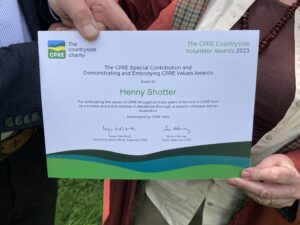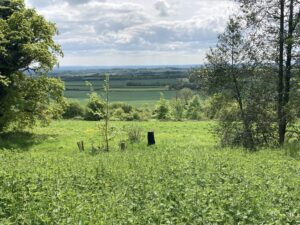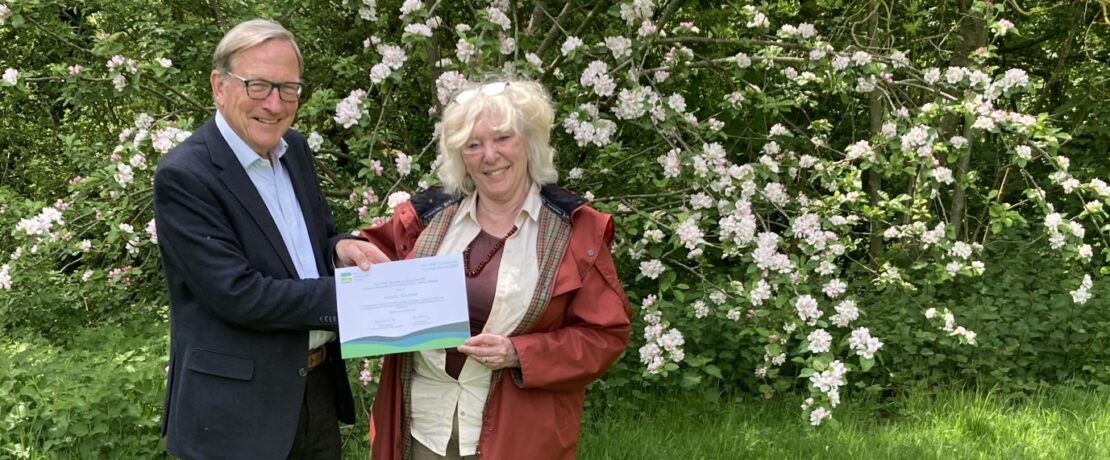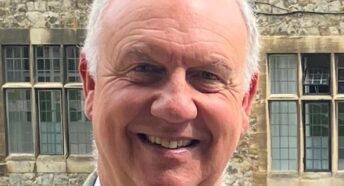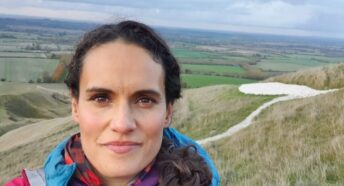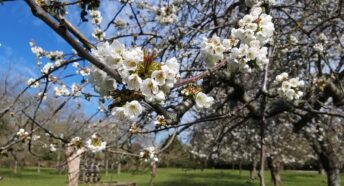Henny Shotter: a volunteer’s story
‘Superb colleague and an inspiration’ handed CPRE awards up on the downs
Henny Shotter, for so long one of CPRE Kent’s most active and devoted members, has been recognised for her sterling efforts in helping protect our rural heritage.
Every year, county branches nominate some of those who have been putting in the hard yards for CPRE Countryside Volunteers Awards – and this time round Kent decided it was Henny’s time in the sun.
She was joined at Cherry Downs near her beloved Lenham by John Wotton, CPRE Kent chairman, who handed her a certificate for special contribution and demonstrating and embodying CPRE values.
Described by colleagues at CPRE Kent as “a superb colleague and an inspiration”, Henny had also been involved with CPRE while living in Lincolnshire.
The CPRE Kent nomination read: “Being an active volunteer during a period of Local Plan-making in Maidstone borough involved an enormous amount of work, especially in relation to controversial proposals for garden settlements in the borough.
“As a committed and knowledgeable environmentalist, Henny has been active in our environment group, anticipating many of the issues that now loom largest in our work, including water scarcity.
“A conscientious and always constructive member of the board of trustees, Henny displays sound judgement of issues and people. She is a superb colleague, valued and appreciated by fellow volunteers and staff of the Kent branch.”
Far better, though, to let Henny do the talking, so here is her story…
“It was a development on the North Downs near my home that spurred me on to become an active member of CPRE 35 years ago.
“Except for the years when we lived abroad, I was actively involved in some sort of role with CPRE in Kent (district representative, Maidstone East), Lincolnshire (South Kesteven district group, branch vice-chair) and again Kent (Maidstone group and trustee).
“My interest in the relationship between the built environment and people, the natural world and resource management, such as water or agriculture, had, however, begun earlier at university in my home city of Stuttgart, in interdisciplinary seminars with planners and architects.
“Most important was the report of the Club of Rome about the Limits to Growth in 1972. It made me aware how precious the natural world was and that we must be innovative in safeguarding it. Some years later, the running joke in my family was ‘Mum gets all excited when she sees solar panels on roofs’.
“We still build houses without solar panels or rainwater recycling. We still build houses in places with excellent soil (even Grade 1!), which we ought to protect for the production of food, especially in times of climate change.
“Now we even build houses in areas that are on floodplains, as happened at Bearsted, near Maidstone. We now build houses near the sensitive area of river headwaters, as is happening at Lenham and Otterpool. We live with loopholes in planning laws, which undermines the protection of the AONBs and the most important water store in the county, the North Downs.
“Since the introduction of the National Planning Policy Framework (NPPF) in 2011, urbanisation has immeasurably damaged our most important natural resource: the countryside.
“We have, though, made some progress. In the early days of my involvement with CPRE Kent, in the late 80s, I wrote an article for its magazine Kent Voice about the virtues of recycling and residual waste incineration.
“I am happy that today nothing that I take to my recycling centre in Ashford ends up in landfill. One piece of countryside spared. Some battles were lost, and some were won. Was the effort worthwhile? Of course it was. Even the battles lost helped raise the profile of the countryside.
“As a volunteer for CPRE, I have had the privilege of working together with highly motivated and highly qualified volunteers and professionals. It has been interesting and challenging. A privilege indeed – and one I wholeheartedly commend to others.”
